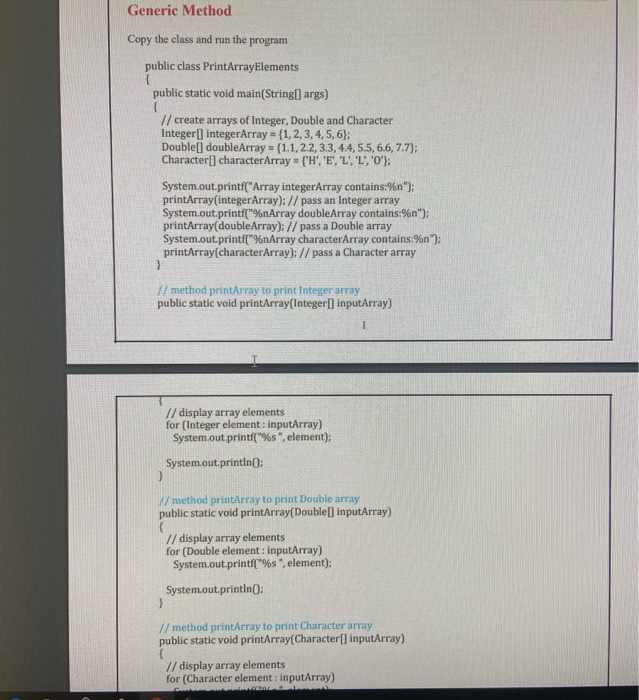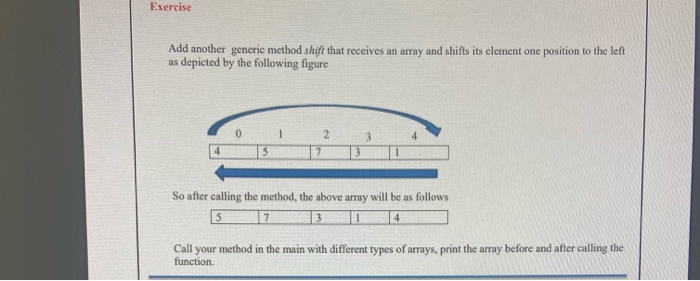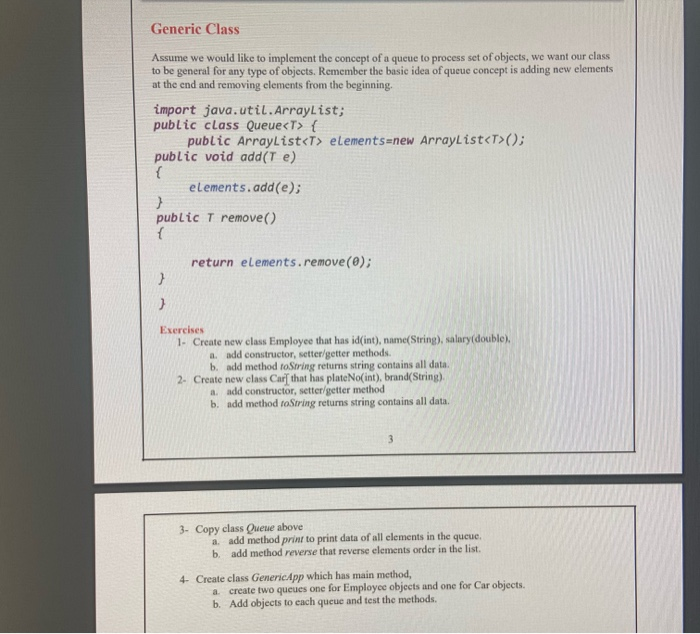Question: this data structure hw, need your help Generic Method Copy the class and run the program public class PrintArrayElements public static void main(String[] args) //

![class and run the program public class PrintArrayElements public static void main(String[]](https://s3.amazonaws.com/si.experts.images/answers/2024/09/66dc34d388e59_47466dc34d2ba807.jpg)


Generic Method Copy the class and run the program public class PrintArrayElements public static void main(String[] args) // create arrays of Integer, Double and Character Integer) integerArray = {1,2,3,4,5,6); Double doubleArray = {1.1, 2.2, 3.3, 4.4, 5.5, 6.6, 7.7}; Character characterArray = {'H', 'E', 'L', 'L', '0'); System.out.printf("Array integerArray contains:%n"); printArray(integerArray); // pass an Integer array System.out.printf("%nArray doubleArray contains:9n"); printArray(doubleArray); // pass a Double array System.out.printf("%nArray characterArray contains:%n"); printArray(character Array); // pass a Character array // method printArray to print Integer array public static void printArray(Integer inputArray) // display array elements for (Integer element:inputArray) System.out.printf("%s", element); System.out.println(); // method printArray to print Double array public static void printArray(Double[inputArray) // display array elements for (Double element:inputArray) System.out.printf("%s", element): System.out.println(); // method printArray to print Character array public static void printArray(Character inputArray) // display array elements for (Character element:inputArray) OM C 77 methoprintArray to print Double array public static void printArray(Double[inputArray) W/ display array elements for (Double element: inputArray) System.out.printf("%s", element); System.out.println(); // method printArray to print Character array public static void printArray(Character[] inputArray) // display array elements for (Character element:inputArray) System.out.printf("%s", element); System.out.println(); } // end class Overloaded Methods*** The class above has three different methods called printarray but each one has parameter of different data type. We call this Note the three methods performed the same operations but with different types. We can replace the three methods with one generic method as follows W/ generic method printArray public static
Step by Step Solution
There are 3 Steps involved in it

Get step-by-step solutions from verified subject matter experts


